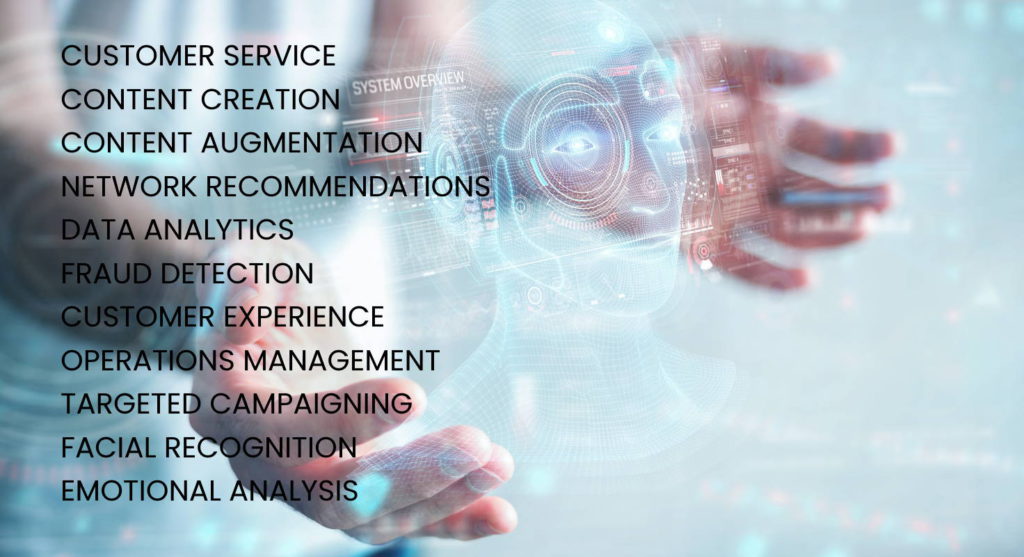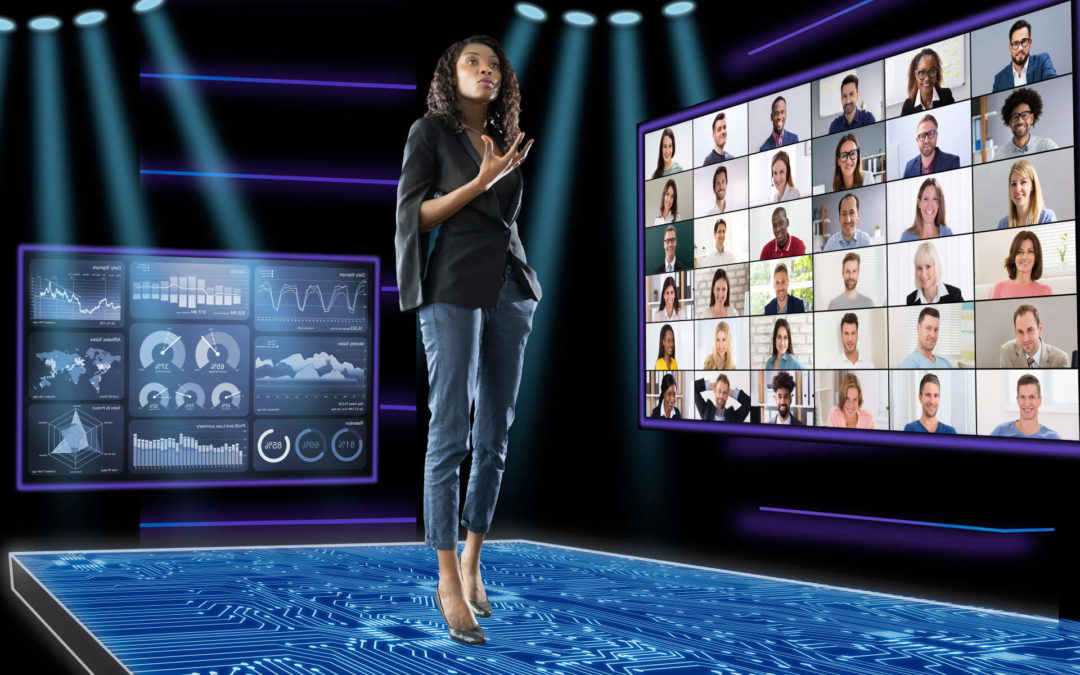AI could deserve a lot of recognition in marketing and producing events. So, why or how should you use it for your event? Here are some of the uses of AI in events:
- Customer Service – Machine learning technology, one of the current forms of AI, enables bots to observe and learn behavioral patterns and act as virtual caretakers for individuals. In virtual events, where artificially powered bots drive their audience, the effectiveness of these platforms is critical to securing customer loyalty and providing a personalized experience, or both. [3]
- Data Insights – With regard to virtual events, AI systems will collect and process big data from participants to establish the interests and objectives of the audience. If you know what your audience wants, create more interactive and accessible content for your virtual event. AI can learn from past virtual events or events that happened today and tell you what will work best for the next event and, if not, what you can do about it. [6, 4]
- Matchmaking – One of the best ways to use AI is to provide personalization and recommendations for event attendees. For example, having event attendees fill out a survey about their interests before coming to a trade show – then use AI to match them with the companies that most closely match their profile. [7]
- Content Augmentation – With the aid of AI, participants can view live transcripts in different languages and ask questions in real-time, increasing the webinar’s audience participation. According to the University of California, San Diego School of Business, participants can view a live transcript of the language of the event. It then gets translated on the fly to other languages. The audience can also ask questions in their own language, increasing engagement. [1]
- Content Creation – In a more cutting edge example, AI has been used to generate video content for corporate events using AI avatars in real-time, pioneered by Synthesia, all that was needed was a text script with identifiable virtual actors. In 3 easy steps, the video would come to life.

AI will make virtual events more immersive, engaging, and amazing. Microsoft has unveiled virtual stage technology that allows speakers anywhere in the world to blend seamlessly with any background or computer-generated images, interacting in real-time with the image the home audience sees. Powered by its Kinect motion sensors, this is a fascinating example of the type of event tech that will be available to anyone soon.
Presenters on the virtual stage can play and demonstrate with data itself as they pull visualizations seemingly out of thin air. Here, AI is used to fit the presenter’s image with the computer-generated graphics in a seamless way, making it appear as if they are all inhabiting the same virtual space.
Artificial intelligence can improve digital and personal events without putting too much pressure on budgets and sometimes even helping reduce them. AI is a powerful cost-saving tool since it can automate many tasks that otherwise would need to be required by an actual person. This means that – both now and in the future – AI will help event organizers save on event costs.
As a simple example, using an automated kiosk with facial recognition for event check-in means that you may only need one or two team members to perform check-ins – not booths and tables with dozens of workers checking in attendees and handing out packets.
Audience participation and interactivity have been a significant challenge for virtual marketers, but AI can help plan meetings. Using AI in virtual events can significantly impact the event’s overall experience, making virtual events more interactive and attractive to the public. The integration and interactivity of the audience was or is the starting point of significant challenges for virtual marketers, and AI can come to the rescue. [2, 5, 8]
See how we can help you be more relevant in your next event here.

